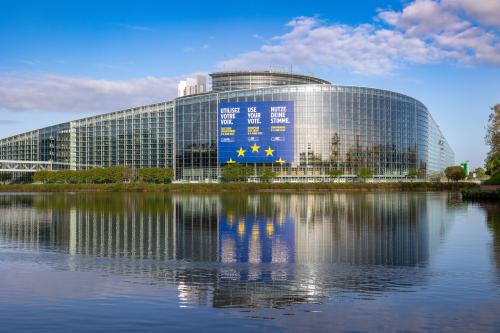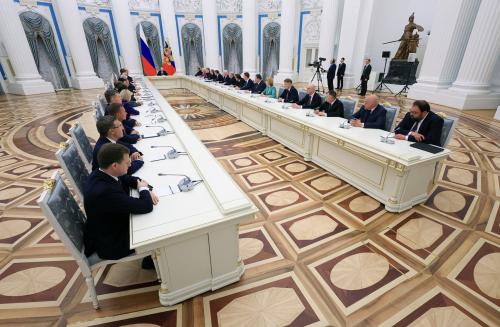

The Brookings Institution’s Center for Public Service today released a survey report confirming that public trust in government, robust in the wake of September 11, has declined in recent months but is still above the level it was before the terrorist attacks.
“The post-9/11 rise in public support for the federal government is now ebbing,” said Paul C. Light, director of the Center for Public Service and vice president and director of Governmental Studies at the Brookings Institution. “Unfortunately, Americans’ trust in government appears to be returning to normal.”
Trust in government has been eroding since the 1960s. In the aftermath of September 11, however, this long-term trend was sharply reversed, with 57 percent of Americans saying that they trusted the federal government to do what is right just about always or most of the time. By May, this number had dropped 17 percentage points, to 40 percent.
“September 11 created a government moment, a time for citizens to recognize and appreciate the services that government provides, and the skill with which it performs,” stated G. Calvin Mackenzie, co-author of the survey report and senior adviser to the new National Commission on the Public Service, a project of the Center for Public Service. “But, just as clearly, the moment has passed.” Mackenzie co-authored the report with Judith M. Labiner, deputy director of the Center for Public Service.
The general decline in trust is evident in the declining favorability toward government, business, and news media. Favorability ratings rose across-the-board after September 11, but nowhere was the spike more evident, and precipitous, as with the federal government.
The decline in public trust in government is associated with the declining approval ratings of its leaders and workers. According to G. Calvin Mackenzie, “the more positive the public’s assessments of its leaders, the greater its trust in government is likely to be. “
Favorability ratings for government officials and federal employees remain above 50 percent, and are still higher than pre-September 11 levels. “The decline in trust over the past eight months may signal nothing more significant than the return of the normal ebb-and-flow of public attitudes towards government,” said Paul Light. “It’s quite probable that the high favorability ratings for Bush, Cheney, Rumsfeld and Powell have kept trust in government from falling further.”
ABOUT THE SURVEY AND THE CENTER FOR PUBLIC SERVICE:
The nationwide survey of 986 respondents was conducted between May 2 and May 12, 2002, by Princeton Survey Research Associates, under the direction of the Center for Public Service. The margin of error is plus or minus three percent. The October 2001 survey was conducted between September 27 and October 6, 2001, with 1033 respondents. The July 2001 survey was conducted between June 18 and July 18, 2001, with 1003 respondents. The margin of error for both the October and July surveys was plus or minus three percent.
The Center for Public Service was established by the Brookings Institution in 1999 to monitor the state of the public service today, and ask how the public sector can be more effective in both inviting talented Americans to serve, and providing the kind of challenging work that talented Americans seek.
For interview requests with Paul C. Light or G. Calvin Mackenzie, contact Gina Russo at 202/797-6405 or [email protected].

Tara Varma, Sophie Roehse
May 17, 2024

Natan Sachs
May 17, 2024

Angela Stent
May 17, 2024